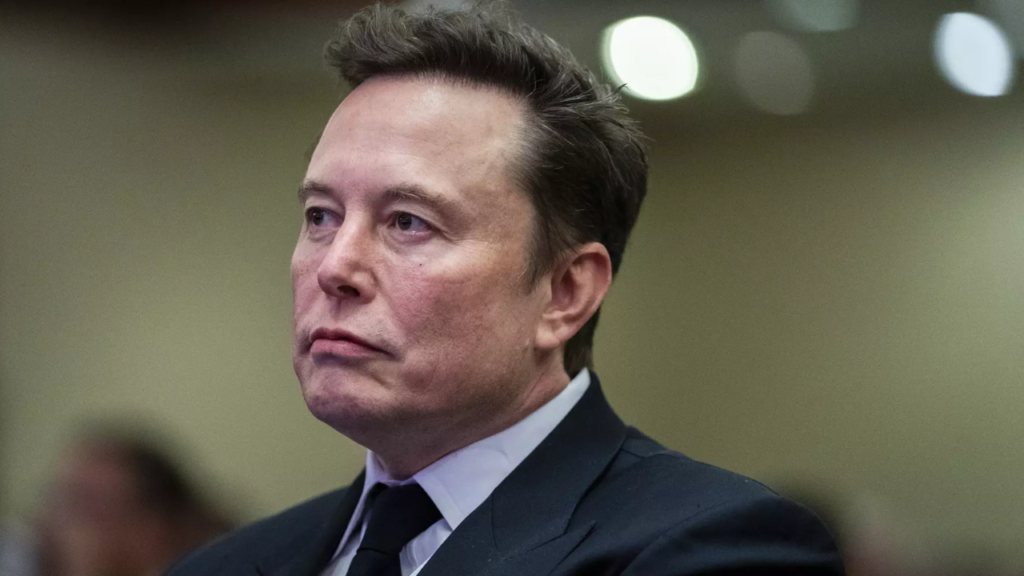In recent discussions about government spending, a DOGE member has raised a provocative concern: the federal government has ‘no incentive’ to respect taxpayer money.
This statement has drawn attention and sparked debates about the handling of public funds and the growing mistrust that many people feel toward governmental financial practices.
But what exactly does this mean, and why is this claim gaining traction? Let’s explore this argument in detail and understand the larger context behind the statement.
The Issue of Accountability in Government Spending
The statement made by the DOGE member points to a recurring issue many citizens have with how taxpayer money is handled by the federal government.
For years, taxpayers have been sending their hard-earned money to fund various government projects, from infrastructure developments to defense and public welfare programs. However, a growing number of people feel that there is a lack of accountability in how these funds are allocated and spent.
The idea that the government may not prioritize taxpayer money is not new. For decades, government spending has been scrutinized for inefficiencies, waste, and mismanagement.
From military contractors overcharging the government to instances of public funds being used for questionable projects, there have been numerous examples of financial mismanagement that have raised alarms.
The question many people are asking is whether the government is truly respecting the trust that taxpayers place in it.
The Role of Incentives in Governmental Decision-Making
A key part of the DOGE member’s claim is the notion of incentives. Incentives are what drive behavior, and in the context of government spending, the incentive for respecting taxpayer money should be clear.
The government is supposed to use public funds to serve the people by improving public services, building infrastructure, and ensuring a higher quality of life for citizens. The primary incentive for government agencies should be the well-being of the people they represent.
However, according to the DOGE member, this incentive seems to be lacking. They argue that the government has little motivation to use taxpayer money efficiently because there are no significant consequences for mismanagement.
Governments often face public scrutiny, but in many cases, there are no legal or financial repercussions that hold them accountable for inefficiency or corruption.
This idea isn’t just a hypothetical concern—it’s based on numerous examples of government spending gone wrong. Overspending, failed projects, and corruption scandals have led to widespread public distrust.
Without a strong incentive structure to ensure that taxpayer money is used efficiently, many believe that the government is less likely to prioritize responsible financial management.
The Growing Distrust Among Taxpayers

The claim made by the DOGE member reflects a broader sentiment among many citizens who feel disconnected from the government. With rising taxes and increasing national debt, many Americans wonder where their money is going.
Whether it’s the soaring costs of public services or the inefficiencies in government programs, taxpayers often feel that their contributions are not being put to good use.
Moreover, the rise of movements like DOGE Coin and other cryptocurrency initiatives is partially a response to this lack of trust.
Many people are turning to decentralized financial systems like DOGE as a way to reclaim control over their money, seeing it as a more transparent and accountable alternative to traditional government-managed systems.
The lack of accountability in government spending fuels this distrust. When taxpayers see their money spent on programs with questionable outcomes, it creates frustration and anger.
This sense of betrayal is not just limited to one political side; it transcends political lines, as both Democrats and Republicans have been guilty of failing to prioritize taxpayer interests in the past.
A Shift Toward Transparency and Efficiency
In response to concerns like the one voiced by the DOGE member, there have been calls for increased transparency in government spending.
Several proposals aim to make the allocation of taxpayer money more open to scrutiny, with the hope that greater transparency will lead to better financial accountability.
Online platforms and independent watchdog groups have also been pushing for more visibility into how public funds are spent.
Moreover, technology and digital tools could play a pivotal role in increasing efficiency in government programs.
Blockchain technology, for instance, offers a promising solution for ensuring that every dollar spent is traceable and accountable. As digital currency and other blockchain-based solutions continue to gain popularity, it’s possible that we could see more innovative ways to manage taxpayer money in the future.
However, these changes require political will and a commitment to long-term solutions, rather than short-term fixes.
This is where the government’s incentives come into play. Without a significant shift in how lawmakers and public officials view the responsibility of managing taxpayer funds, many of these proposed solutions may fail to take root.
The Need for Accountability and Trust
To address the concerns raised by the DOGE member, the government must find ways to build greater accountability into its financial practices.
This includes implementing better oversight mechanisms, ensuring that funds are allocated based on need rather than political favoritism, and prioritizing programs that directly benefit the public.
At the same time, the government must work to rebuild trust with taxpayers. This can only happen when people see that their money is being used effectively and that there are real consequences for financial mismanagement.
Transparency, responsibility, and accountability should be the cornerstones of any governmental spending plan.
Conclusion
The claim by the DOGE member that the federal government has “no incentive” to respect taxpayer money shines a light on a critical issue: the lack of accountability in government spending.
For too long, the government has been able to operate without facing significant consequences for financial inefficiencies, leading to widespread public frustration.
However, there is hope that through greater transparency and the use of modern technologies, the government can begin to rebuild trust with the public and ensure that taxpayer money is being used in a way that benefits everyone.
The key to addressing these concerns lies in creating a government that truly respects the people it serves by prioritizing responsible financial management and holding public officials accountable for how taxpayer funds are spent.
Only then will citizens begin to feel that their contributions are being used wisely, and only then will the government earn back the trust of its people.
Disclaimer- Our team has thoroughly fact-checked this article to ensure its accuracy and maintain its credibility. We are committed to providing honest and reliable content for our readers.






